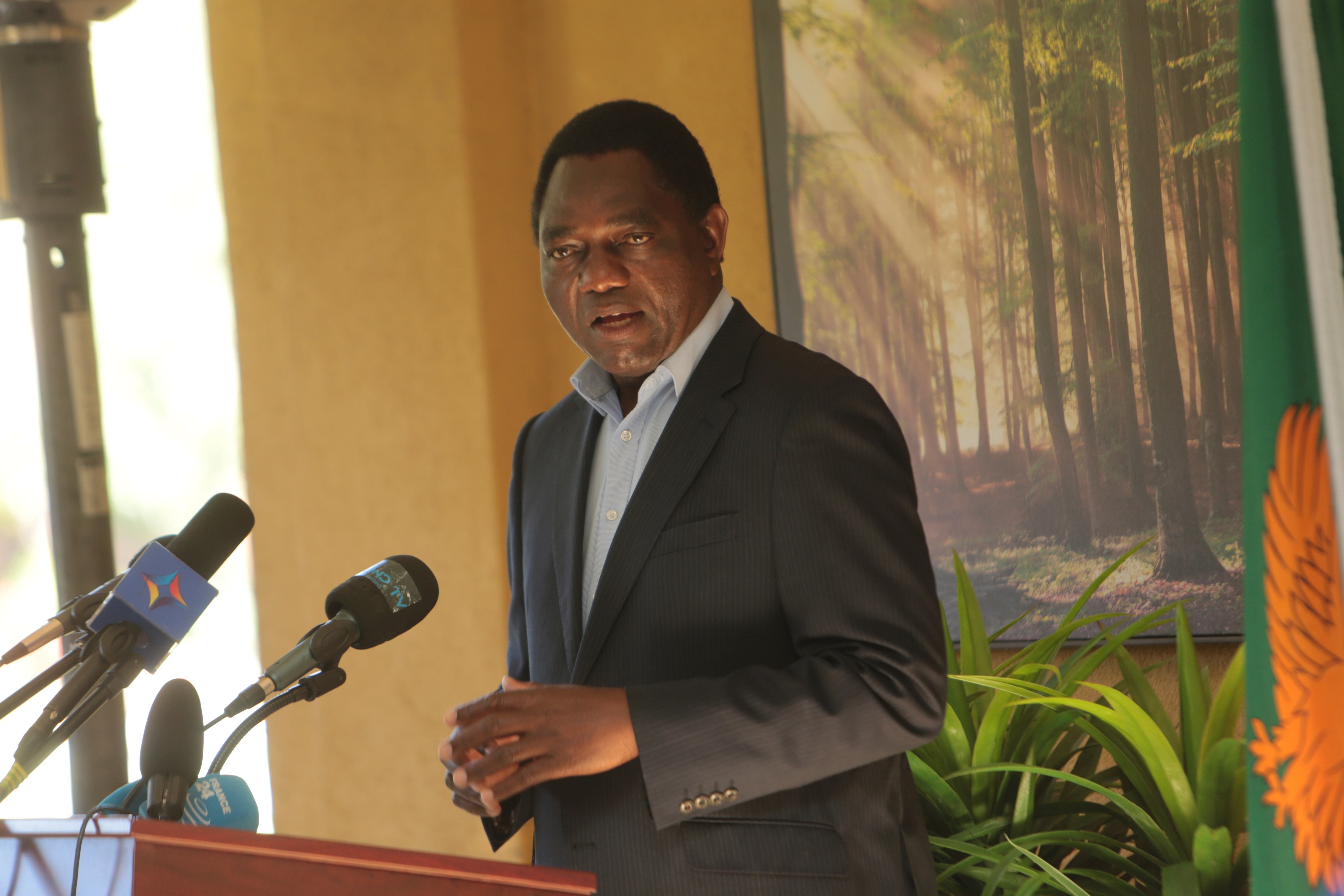Zambia's opposition leader warns of tensions ahead of polls
Zambia’s main opposition leader has warned the military deployed on the streets ahead of crucial elections Thursday against “aiding a particular party” and raised concern that the country could fall into chaos if the polls are “mismanaged.”

Your support helps us to tell the story
From reproductive rights to climate change to Big Tech, The Independent is on the ground when the story is developing. Whether it's investigating the financials of Elon Musk's pro-Trump PAC or producing our latest documentary, 'The A Word', which shines a light on the American women fighting for reproductive rights, we know how important it is to parse out the facts from the messaging.
At such a critical moment in US history, we need reporters on the ground. Your donation allows us to keep sending journalists to speak to both sides of the story.
The Independent is trusted by Americans across the entire political spectrum. And unlike many other quality news outlets, we choose not to lock Americans out of our reporting and analysis with paywalls. We believe quality journalism should be available to everyone, paid for by those who can afford it.
Your support makes all the difference.Zambia’s main opposition leader has warned the military deployed on the streets ahead of crucial elections Thursday against “aiding a particular party” and raised concern that the country could fall into chaos if the polls are “mismanaged.”
Hakainde Hichilema, addressing reporters Wednesday, spoke of rising tensions including reports of violence between supporters of the major political parties. He said the elections are likely to test the stability of the southern African country’s democracy.
President Edgar Lungu 64, and the 59-year old businessman Hichilema are frontrunners in a field of 16 presidential candidates. National Assembly and local government seats are also being contested.
Lungu says he sent the army into the streets last week to curb growing violence, although the opposition claims the move is meant to intimidate its supporters.
Hichilema said it was the first time in Zambia's history that the military was patroling the streets on an election day.
“For the first time in the history of our independent Zambia, we have men and women in uniform, more than policemen, in the communities tomorrow. That is new,” Hichilema said, warning that the country’s long-cherished peace is at stake. “That has never happened before. We never had the military manning streets and possibly polling stations. No voter should feel intimidated to go and vote.”
Fears of post-election unrest have been voiced by many in the copper-rich country, including by Lungu and the Electoral Commission of Zambia.
Lungu, dismissing the opposition as “perpetual crybabies” for alleging pre-election intimidation and violence, told an African Union observer mission during a meeting that the post-election period was likely to be “acrimonious” according to the pro-government The Times of Zambia newspaper. He urged the observer mission to stay on after the election “to manage the crybabies.”
In a closing pitch to supporters Wednesday before the election, Lungu urged peace.
“Let there be no vengeance on the part of those who will win, and let there be no anger and disenchantment on those who will lose, which will plunge the country into chaos,” he said.
The electoral commission this week spoke against the publication of “unverified results,” saying that the commission had the sole mandate to announce official results. The ban on the announcement of results by anyone other than the commission is to avoid creating instability, the commission said, adding that it had put in place contingency measures if the internet is shut down as feared by many.
But Hichilema, the opposition leader, said the ban on announcing unofficial results should be defied because it could lead to rigging and “even more instability.”
“Phones must be allowed in the polling stations because we need to do parallel voter tabulation. Why shouldn’t political party agents, monitors and, indeed, anyone else be able to take a picture of the results certificate and transmit it to whoever they want to, wherever,” he said.
The mood was jubilant for Lungu’s supporters in the capital, Lusaka, Wednesday as they embarked on roadshows in poor neighborhoods where Lungu also toured. Campaign activities of other candidates and parties were largely restricted to radio and online platforms, with hardly anyone wearing opposition regalia in public, amid allegations of intimidation.
Zambia has a proud history of relatively credible elections and transfers of power since the founding president, the late Kenneth Kaunda introduced multi-party democracy and subsequently accepted defeat in 1991. Lungu’s critics have accused him of reversing those gains, charges he denies.